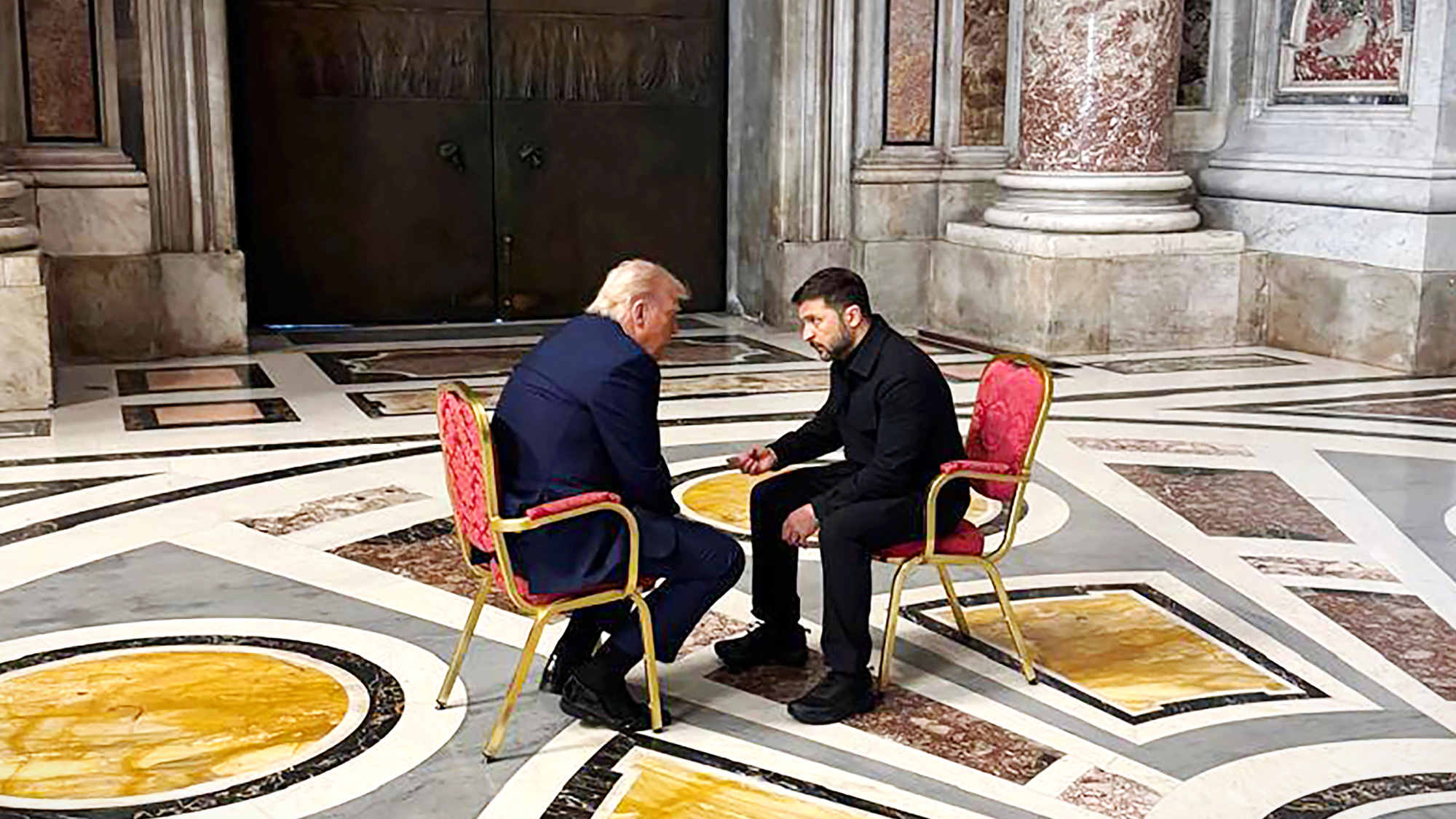US, Ukraine sign joint minerals deal
The Trump administration signed a deal with Ukraine giving the US access to its mineral wealth


A free daily email with the biggest news stories of the day – and the best features from TheWeek.com
You are now subscribed
Your newsletter sign-up was successful
What happened
Treasury Secretary Scott Bessent and Ukrainian Deputy Prime Minister Yulia Svyrydenko Wednesday signed a deal to share Ukraine's mineral wealth through a new joint partnership, the United States-Ukraine Reconstruction Investment Fund. The agreement "signals clearly to Russia that the Trump administration is committed to a peace process centered on a free, sovereign and prosperous Ukraine over the long term," Bessent said in a statement.
Who said what
The minerals deal, sealed after "months of fraught negotiations," was intended to give President Donald Trump a "personal stake" in Ukraine's fate "while addressing his concerns that the United States has provided Kyiv with a blank check to try to withstand Russia's invasion," The New York Times said. Unlike earlier drafts, which "critics called a brazen extortion of Ukraine," the final deal stipulates that only future U.S. military aid can be counted toward America's 50% contribution to the fund. The partnership will finance investments to extract Ukraine's oil, gas, titanium, uranium and rare earth minerals, and the revenue will be split 50/50.
What next?
The agreement, which still needs ratification by Ukraine's parliament, looks like a "win-win," Heidi Crebo-Rediker of the Council on Foreign Relations told The Wall Street Journal. "The U.S. will have a vested interest in the geology that the Ukrainians will be fighting for." But "Trump cannot force private U.S. firms to make expensive and potentially unprofitable investments" in Ukrainian mineral projects, The Washington Post said, especially during a war.
The Week
Escape your echo chamber. Get the facts behind the news, plus analysis from multiple perspectives.

Sign up for The Week's Free Newsletters
From our morning news briefing to a weekly Good News Newsletter, get the best of The Week delivered directly to your inbox.
From our morning news briefing to a weekly Good News Newsletter, get the best of The Week delivered directly to your inbox.
A free daily email with the biggest news stories of the day – and the best features from TheWeek.com
Peter has worked as a news and culture writer and editor at The Week since the site's launch in 2008. He covers politics, world affairs, religion and cultural currents. His journalism career began as a copy editor at a financial newswire and has included editorial positions at The New York Times Magazine, Facts on File, and Oregon State University.
-
 Health insurance: Premiums soar as ACA subsidies end
Health insurance: Premiums soar as ACA subsidies endFeature 1.4 million people have dropped coverage
-
 Anthropic: AI triggers the ‘SaaSpocalypse’
Anthropic: AI triggers the ‘SaaSpocalypse’Feature A grim reaper for software services?
-
 NIH director Bhattacharya tapped as acting CDC head
NIH director Bhattacharya tapped as acting CDC headSpeed Read Jay Bhattacharya, a critic of the CDC’s Covid-19 response, will now lead the Centers for Disease Control and Prevention
-
 Ex-South Korean leader gets life sentence for insurrection
Ex-South Korean leader gets life sentence for insurrectionSpeed Read South Korean President Yoon Suk Yeol was sentenced to life in prison over his declaration of martial law in 2024
-
 Will increasing tensions with Iran boil over into war?
Will increasing tensions with Iran boil over into war?Today’s Big Question President Donald Trump has recently been threatening the country
-
 Corruption: The spy sheikh and the president
Corruption: The spy sheikh and the presidentFeature Trump is at the center of another scandal
-
 Putin’s shadow war
Putin’s shadow warFeature The Kremlin is waging a campaign of sabotage and subversion against Ukraine’s allies in the West
-
 Rubio boosts Orbán ahead of Hungary election
Rubio boosts Orbán ahead of Hungary electionSpeed Read Far-right nationalist Prime Minister Viktor Orbán is facing a tough re-election fight after many years in power
-
 Key Bangladesh election returns old guard to power
Key Bangladesh election returns old guard to powerSpeed Read The Bangladesh Nationalist Party claimed a decisive victory
-
 Greenland’s capital becomes ground zero for the country’s diplomatic straits
Greenland’s capital becomes ground zero for the country’s diplomatic straitsIN THE SPOTLIGHT A flurry of new consular activity in Nuuk shows how important Greenland has become to Europeans’ anxiety about American imperialism
-
 Which way will Trump go on Iran?
Which way will Trump go on Iran?Today’s Big Question Diplomatic talks set to be held in Turkey on Friday, but failure to reach an agreement could have ‘terrible’ global ramifications
